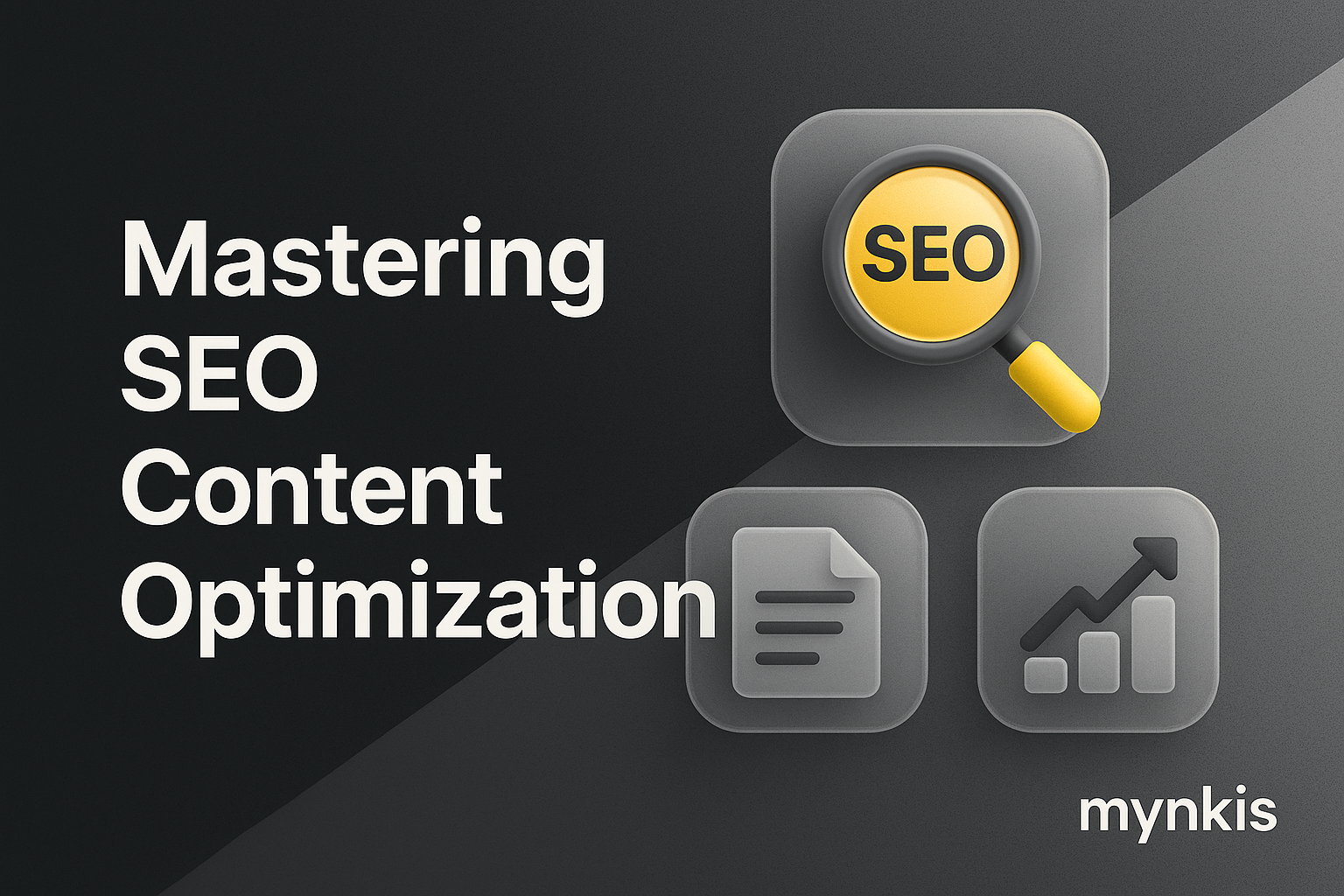Schedule a Demo
In the world of digital marketing, Search Engine Optimization (SEO) is the cornerstone for achieving higher visibility and driving quality traffic to your website. I've worked with countless professionals and managers who are deeply invested in the success of their practices, and each time, I've seen the transformative impact SEO can have. From boosting your search engine rankings to increasing the number of organic visitors, the benefits are undeniable. Yet, the challenge remains in crafting content that not only resonates with your audience but also aligns with SEO best practices.
Keyword research is the foundation of SEO content optimization. By understanding the terms and phrases your potential clients use when searching for services like yours, you can tailor your content to meet them at their moment of need. In my work, I've seen firsthand how leveraging tools like Google Keyword Planner can provide invaluable insights into search volume and competition, guiding your content strategy towards more effective keywords.
Creating content that is both engaging and SEO-friendly requires a delicate balance between art and science. It’s about weaving those researched keywords naturally into your text while ensuring your content delivers value to your readers. I often stress to the business owners I collaborate with that content should address the needs, questions, and problems of your target audience, making sure to capture their attention and maintain their engagement through compelling narratives and authoritative insights.
Structure matters as much as the content itself when it comes to SEO. Utilizing clear and descriptive headings helps not only in making your content readable but also in allowing search engines to better understand and index your page's content. In my experience, practices with well-organized blogs and service pages experience better engagement rates because visitors can quickly find the information they need.
On-page SEO elements such as meta descriptions, URL structures, and image alt tags play crucial roles in optimizing your website. A well-crafted meta description, for instance, can improve click-through rates from search results pages. My advice to managers looking to optimize their site is to keep URLs short, relevant, and keyword-optimized while ensuring every image on their website includes descriptive alt tags to enhance accessibility and SEO.
Longer, in-depth content tends to perform better in search engine rankings, particularly for competitive topics. According to studies from Backlinko, articles with a word count between 1,600 and 1,900 tend to receive more backlinks, shares, and organic traffic. When working with practices, I've noticed that in-depth guides and articles not only showcase their expertise but also serve as a magnet for quality traffic.
With mobile searches surpassing desktop queries, ensuring your content is optimized for mobile devices is critical. I've seen practices skyrocket their site engagement by providing a seamless mobile experience. Ensuring your site loads quickly and adjusts to various screen sizes improves user experience, which indirectly boosts SEO performance.
Internal linking is a powerful yet often overlooked SEO strategy. By linking relevant content within your site, you create a network of information that not only enhances user experience but also helps search engines understand your site structure better. I've implemented this strategy with numerous clients, noticing marked improvements in their site's navigation and SEO performance.
Integrating credible external content, such as guest posts or resource lists, can significantly enhance the value of your content while increasing its SEO potential. Referencing established organizations and well-respected technology leaders lends authority to your articles. When I guide managers on content strategy, this practice is something we often refine to ensure a boost in SEO rankings through earned trust and credibility.
Keeping your content fresh and updated is key to maintaining and improving SEO. Search engines favor websites that offer the most recent and relevant information. My advice to practices is to regularly review and refresh their content to align with current trends, new services, or updated information—enhancing not only their visibility but also the user experience.
Engagement with your audience can have a direct impact on SEO. Encouraging comments, shares, and likes not only improves site interaction but can also signal to search engines that your content is valuable. Practices that have actively engaged with their audience under my guidance have seen their SEO rankings improve due to enhanced user signals.
Continuous monitoring of your website's SEO performance through tools like Google Analytics is vital for understanding what's working and what isn't. I urge all business owners and executives I work with to dig into their analytics to gauge traffic patterns, bounce rates, and other key metrics. This data-driven approach enables you to refine your SEO strategy for optimal results.
While SEO tactics are essential, never compromise the quality of your content in pursuit of higher rankings. High-quality, valuable content will always win over aggressive SEO techniques. From my perspective, the best approach is one where SEO and content quality are balanced, ensuring that your practice not only attracts clients but also showcases your expertise and commitment to excellence.
The landscape of SEO continues to evolve with algorithm updates and new technologies like AI and machine learning. Staying ahead of these trends requires a proactive approach. Practices that remain adaptable and continue to optimize their content based on new insights and technologies will maintain a competitive edge in the digital space. Based on the insights I've gained from my ongoing work in the field, I can assure you that the future of SEO looks bright for those who prioritize continuous learning and adaptation.
Embracing SEO as a core component of your digital strategy will elevate your practice’s online presence. The strategies discussed here—ranging from understanding keywords to prioritizing mobile optimization—are foundational to capturing and retaining the attention of your target audience. Practices seeking to showcase their expertise and attract more clients should prioritize crafting content that is not only SEO-optimized but also insightful and authoritative. My work has consistently shown that this comprehensive approach to SEO will lead your practice towards greater success and recognition in your field.
